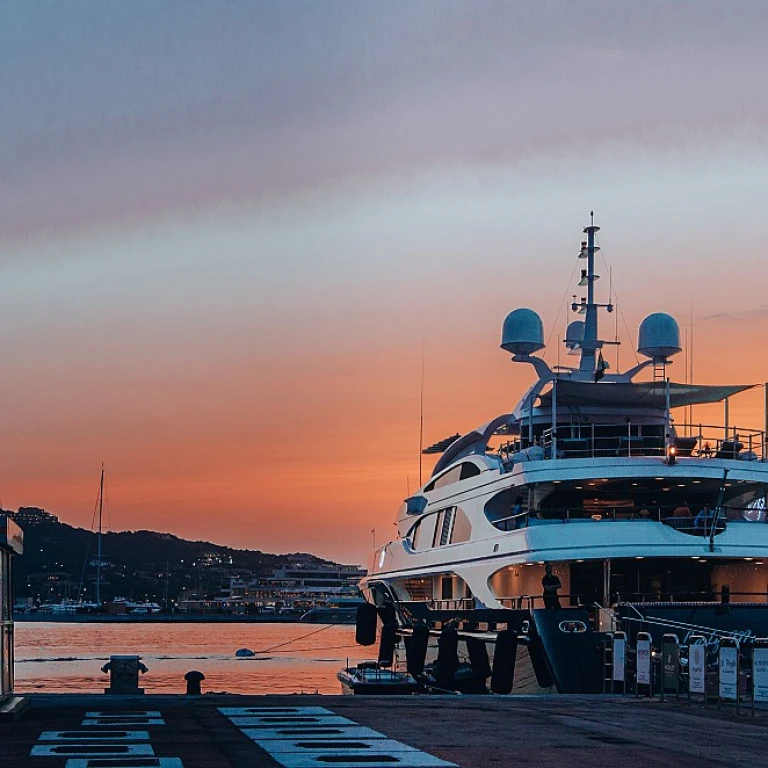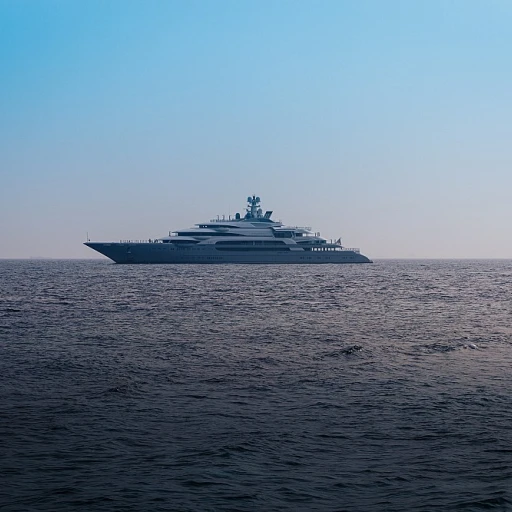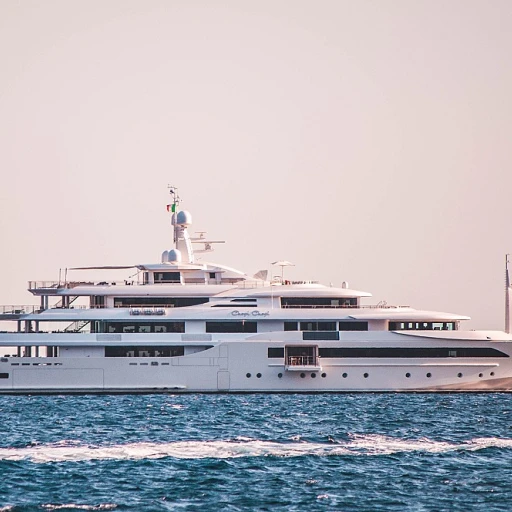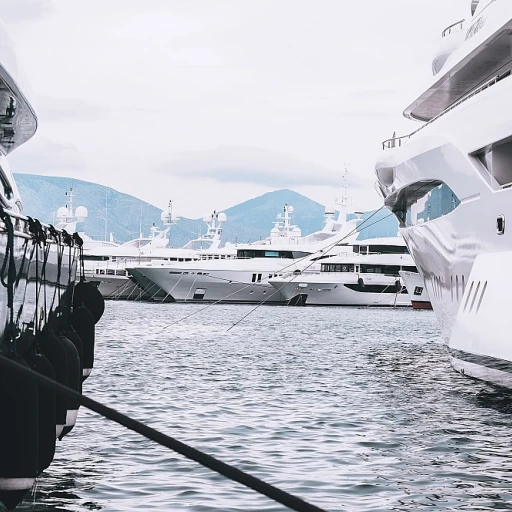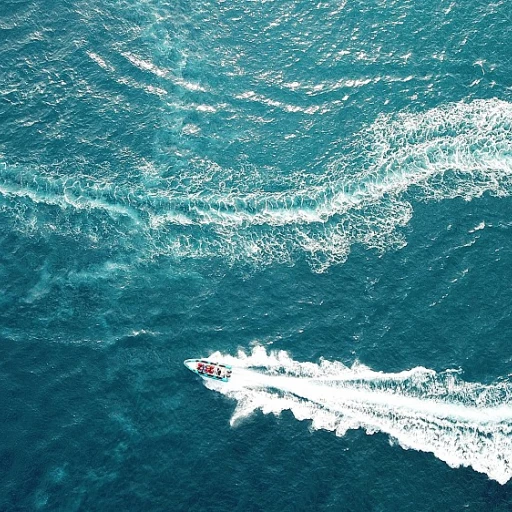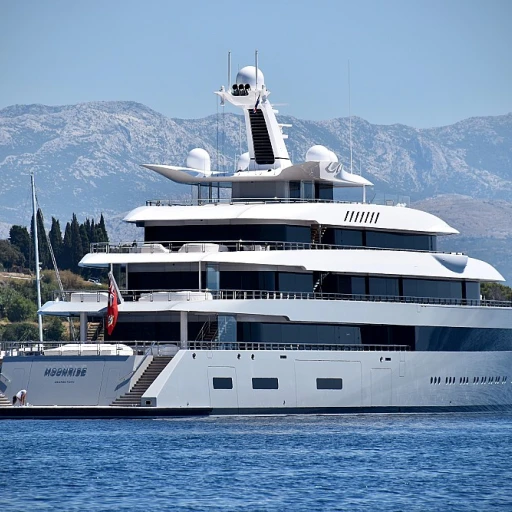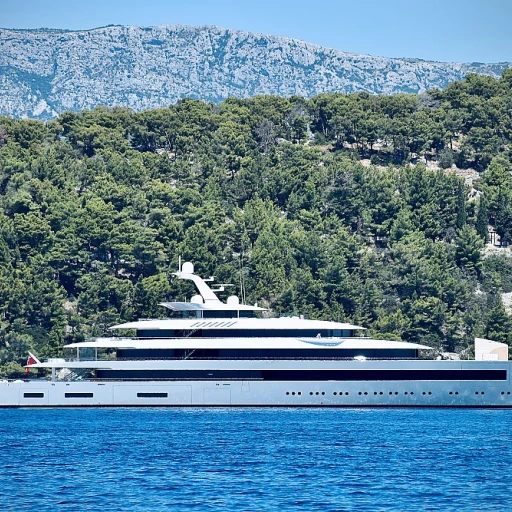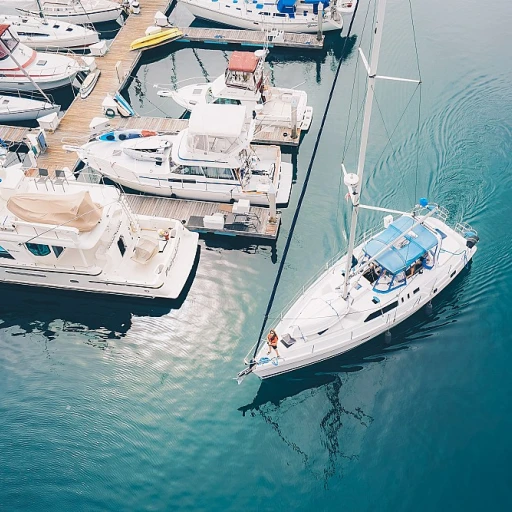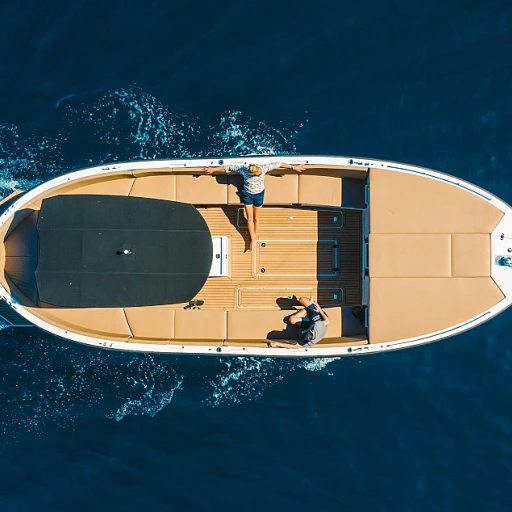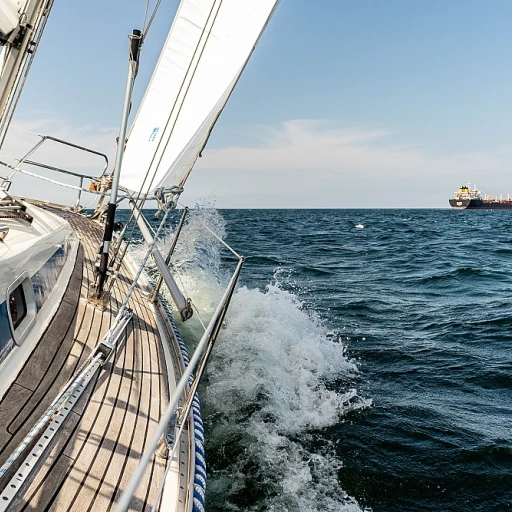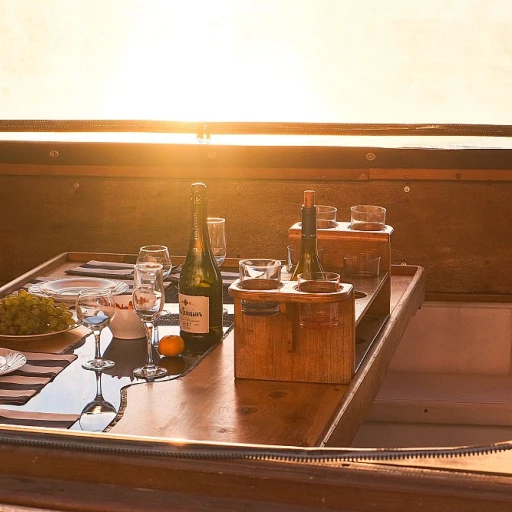The Basics of Yacht Crew Composition
Understanding Yacht Crew Basics
When it comes to the world of luxury yacht management, understanding the basics of yacht crew composition is crucial. The crew is the backbone that supports the smooth operation of any vessel, whether you're dealing with sailing yachts, motor yachts, or even larger vessels like a superyacht. At its core, a well-structured crew ensures safety, comfort, and efficiency on board, transforming a regular yacht charter into an unforgettable sailing experience.
The size and type of yacht play a significant role in determining crew requirements. Larger yachts, especially those above 40 meters, demand a more extensive crew. The number of crew members needed will vary based on the yacht size and the specific needs of the yacht owner. A typical crew for a 40-meter yacht often includes roles such as the captain, chef, deck crew, and various officers, among others.
Each member of the yacht crew fulfills a specialized role, contributing to the vessel's overall operation. While roles may seem distinct, the integration of teamwork and a clear understanding of responsibilities are essential. As yachts become increasingly complex, with semi-custom or even fully custom yachts now common, the expertise of each crew member becomes even more critical.
In terms of professional advancement, yacht crew positions offer competitive salaries and career growth potential. For instance, the role of a chief engineer or head chef requires not only experience but also specialized training and certification. With yachts for sale at an ever-increasing rate, the demand for skilled crew members continues to rise, making it an attractive industry for job seekers who appreciate the maritime lifestyle.
Key Roles and Responsibilities
Understanding Essential Positions and Duties
When it comes to operating a 40-meter yacht, the composition of the yacht crew plays a pivotal role in ensuring the smooth sailing of the vessel. Understanding the key roles and responsibilities of each crew member is crucial for achieving efficiency and luxury service onboard. Whether it’s a motor yacht or a sailing yacht, each crew member contributes to the overall functionality and luxury appeal of the yacht.
The captain guides the yacht through various waters, ensuring the journey’s safety and success. They are the decision-makers, with ultimate responsibility for the vessel and all on board. Managing the yacht’s course requires an intricate understanding of nautical knowledge, demanding a professional adept in both motor yachts and sailing yachts navigation.
Supporting the captain, the chief officer assists with operational duties, making sure navigation safety is adhered to at all times. They also aid in managing the deck crew, coordinating duties such as maintenance, yacht charter preparations, and docking procedures. The chief officer’s efficiency directly impacts the crew dynamics, influencing how well the yacht operates.
In the heart of the vessel, the chief engineer safeguards the technical operations, responsible for maintaining the yacht’s engines and mechanical systems. Their expertise ensures that motor yachts perform seamlessly, reducing the risk of technical failures while voyaging.
Meanwhile, the head chef is tasked with the culinary satisfaction, delighting guests with exquisite meals tailored to the charter's demands. In luxury yacht settings, the cuisine is often a highlight, thus a talented chef is indispensable to providing an unparalleled dining experience.
Among larger yachts, additional roles include deckhands, stewards, and stewardesses. Deckhands manage the external aspects of the yacht, keeping the boat’s exterior in peak condition and assisting during sails or motor operations. Stewards and stewardesses provide hospitality, ensuring guests' comfort with a high-quality service throughout the time spent on board.
When seeking expertise in how these positions collaboratively enhance the experience on such custom yachts, the allure of superior service is undeniable. For those in the market, exploring the allure of Riviera yachts available for purchase might be enlightening, showcasing yachts that embody excellence in crew composition and functionality.
From making the most of a yacht charter to understanding yachts' operational facets, recognizing each crew member's duties is key to appreciating any journey across the waters.
The Importance of Specialized Skills
Specialized Expertise and its Vital Role on Board
In the world of yachts, whether motor yachts or sailing yachts, the essence of excellence is embedded in specialized skills brought by the crew. Each crew member on a 40-meter vessel has specific capabilities that are crucial not only for the smooth operation but for delivering an unforgettable experience.
Specialized skills often include advanced boating and mechanical expertise. For instance, the chief engineer is instrumental in maintaining the yacht's motor and technical systems. Without the know-how to address mechanical issues as they arise, both safety and comfort could be compromised.
The head chef's talents bring the yacht charter to life. Culinary prowess transforms dining into an exquisite journey, aligning with the luxury yacht ethos. Whether you're addressing dietary needs or introducing gourmet dishes, the chef's role cannot be understated.
Equally important is the competence of the captain and deck officers. Their navigation skills ensure that the sailing experience remains seamless, adapting to the elements with proficiency. Furthermore, their ability to manage and lead the yacht crew underpins the trip's success, maintaining harmony and efficiency among crew members.
Deck crew members, meanwhile, specialize in maintaining the exterior aesthetics and ensuring all activities, from maneuvering tenders to watersports, run like a well-oiled machine. These are essential for any yacht owner or yacht charter company seeking a memorable encounter at sea.
The significance of specialized skills is underscored in larger yachts, where responsibilities become more acute with increased yacht size. Thus, as retrieved from comprehensive yacht group discussions, investing in specific training and skill development becomes a cornerstone for any yacht on deck.
For a deeper dive into how these specialized skills enhance the allure and functionality of a million-dollar yacht, you may explore an insightful piece on
the allure of a million-dollar yacht. This exploration will further illuminate the intricate dynamics aboard such luxury vessels and the paramount importance of crew expertise.
Crew Dynamics and Teamwork
Building Cohesion: The Art of Crew Dynamics
Effective crew dynamics is a cornerstone of any successful yacht operation. Whether you're steering a 40-meter luxury yacht through the serene waters or taking on the robust weather challenges in a larger vessel, how well your yacht crew works together can significantly impact the overall experience on board.
The captain plays a pivotal role in fostering a positive atmosphere. Their leadership style can either make or break the morale and efficiency of the crew. An encouraging captain who values input from all crew members ensures better cooperation, thereby minimizing the chances of conflict, which is vital in close-knit quarters.
Moreover, integrating a mix of personalities and skillsets is crucial. The deck crew, chief officer, head chef, and chief engineer all bring unique expertise that complements each other, creating a synergy that supports the smooth sailing of the boat. In sailing yachts or motor yachts, every crew member, from the chefs in the kitchen to the officers overseeing the deck, must harmonize their duties to achieve peak performance.
Frequent communication is essential. Regular check-ins and briefings not only keep everyone aligned with the yacht owner's objectives but also help in timely addressing any issues that might arise. This is especially important during busy charter seasons, where the pressure can be high, and time is often of the essence.
Compensation, such as salary and benefits, also plays a role in maintaining motivation and satisfaction among the yacht crew. Fair remuneration reflects their value to the yacht charter's success and encourages loyalty, which is particularly beneficial for semi-custom or custom yachts that may operate with larger crews.
In summary, while each crew member has distinct responsibilities, the ability to work as a cohesive unit is paramount. When well-managed, these dynamics not only enhance the operation of yachts but also elevate the luxury yacht experience for everyone on board.
Training and Certification Requirements
Professional Development and Qualifications
Preparing for a career as part of a yacht crew requires a comprehensive understanding of the necessary training and qualifications. Given the luxury yacht industry's demands, crew members, from deck crew to the chief engineer and chefs, must possess the appropriate certifications to ensure safety, efficiency, and top-notch service.
Gaining employment on yachts, especially superyachts, often necessitates specific safety and maritime certifications. A basic starting point for many is the STCW (Standards of Training, Certification, and Watchkeeping for Seafarers) course. This certification is mandatory for anyone working on boats over a particular size and covers essential safety practices, first aid, firefighting, and personal survival techniques.
Crew members onboard may also pursue additional certifications tailored to their roles. For instance, a deck crew member might seek qualifications in advanced navigation or sea survival, while a chef working in the yacht's galley should ideally be versed in culinary skills specific to motor yachts and sailing yachts. Further specialized training in areas like advanced firefighting or radar operations can also be advantageous.
Many charters and larger yachts prefer crew members with a background in hospitality or previous work experience on sailing yachts or other vessels. Such experience and the right qualifications not only enhance the team dynamics, as discussed in earlier sections but also improve job prospects and salary potentials for those in the yacht group.
Prospective crew members intending to build a career within the superyacht sphere should be proactive in obtaining the necessary qualifications and remain open to continuous learning and skill enhancement, crucial for adapting to the evolving demands of the luxury yacht market, from semi-custom to custom yachts and beyond.
Challenges and Considerations in Crew Management
Tackling the Complexities of Crew Management
Managing a crew for a 40-meter yacht involves more than just ensuring everyone knows their roles and responsibilities; it involves navigating various challenges and considerations that can affect the success of a yacht charter.
One of the primary challenges is balancing the yacht size and the number of crew members. Larger yachts like superyachts require a more team-oriented crew, as different yacht types can demand varying levels of personnel. Each crew member, from the deck crew to the head chef, plays a crucial role in operation and guest satisfaction.
Managing expectations is another challenge. Yacht owners often have high expectations, and meeting these can be difficult, especially when dealing with semi-custom or custom yacht requirements. Additionally, considerations such as salary expectations and individual skill sets will come into play. Skilled positions, including the chief engineer or the captain, demand higher salaries, which can strain budgeting resources.
Furthermore, ensuring proper communication and cooperation is vital to prevent potential conflicts, especially on lengthy voyages. A harmonious crew dynamic can make or break the experience on board, turning a simple motor yacht journey into an unforgettable adventure.
Time management is another consideration that cannot be overlooked. Coordinating schedules between the deck officer, chef, and other crew members is essential, particularly in aligning with sailing yachts or motor yacht itinerary requirements.
Understanding these challenges elevates the management capabilities on board and ultimately enhances the entire voyage experience, whether on luxury yachts or motor yachts available for charter.
-large-teaser.webp)

